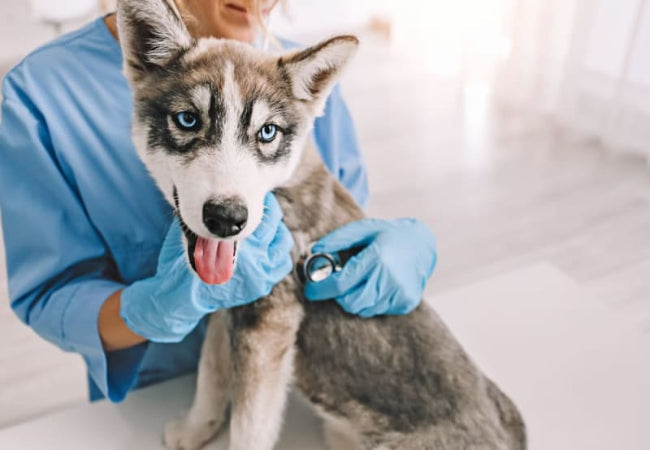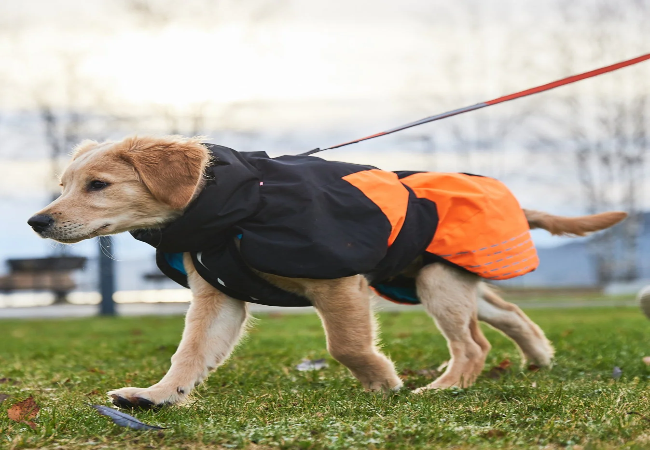Dog Vaccinations 2025: Vet-Approved Guide to Protection 💉🐶

In this article
Dog Vaccinations 2025: Vet-Approved Guide to Protection 💉🐶
By Dr. Duncan Houston BVSc
Vaccinations are an essential part of keeping your dog healthy. Dog vaccines contain small amounts of modified or killed viruses, bacteria, or other disease-causing organisms, known as antigens. These stimulate your dog’s immune system to produce a protective response without causing the disease itself. Later, if your dog encounters the actual pathogen, their immune system can recognize and fight it more effectively.
🐾 Core Vaccines: Essential Protection
Certain vaccines are considered core, meaning they are recommended for all dogs regardless of lifestyle:
1. Canine Parvovirus (CPV)
-
What it affects: Gastrointestinal tract
-
Symptoms: Severe vomiting, diarrhoea, dehydration, lethargy
-
Why vaccinate: Puppies and unvaccinated dogs are highly susceptible. Vaccination reduces the risk and severity.
2. Canine Distemper Virus (CDV)
-
What it affects: Respiratory, gastrointestinal, and nervous systems
-
Symptoms: Fever, nasal discharge, coughing, vomiting, diarrhoea, seizures, paralysis
-
Why vaccinate: Distemper is often fatal, and there is no specific treatment. Vaccination is critical.
3. Canine Adenovirus-2 (CAV-2)
-
What it affects: Respiratory system (CAV-2) and liver (CAV-1)
-
Symptoms: Fever, abdominal pain, vomiting, jaundice, respiratory illness
-
Why vaccinate: Protects against both canine hepatitis (CAV-1) and respiratory disease (CAV-2/kennel cough).
4. Rabies 🦇
-
What it affects: Central nervous system, fatal once symptoms appear
-
Symptoms: Behavioural changes, aggression, paralysis, difficulty swallowing
-
Why vaccinate: Essential for your dog’s health, legally required in many countries, and protects humans from this zoonotic disease.
🐾 Non-Core Vaccines: Based on Lifestyle & Risk
These vaccines are given depending on your dog’s environment, lifestyle, or regional disease risk:
1. Bordetella bronchiseptica (Kennel Cough)
-
Symptoms: Dry cough, nasal discharge, fever
-
Who needs it: Dogs that frequently visit boarding facilities, dog parks, or groomers
2. Canine Influenza Virus (CIV)
-
Symptoms: Coughing, sneezing, nasal discharge, pneumonia in severe cases
-
Who needs it: Dogs at high exposure risk, like those in boarding or dog shows
3. Leptospirosis 🌿
-
Symptoms: Kidney and liver damage, flu-like symptoms, jaundice
-
Who needs it: Dogs exposed to contaminated water or wildlife
4. Lyme Disease (Certain Countries) 🦠
-
Symptoms: Joint pain, swelling, fever, and kidney damage
-
Who needs it: Dogs in areas with high tick prevalence
🛡️ Why Vaccinations Are Important
-
Protect your dog’s health: Prevent severe, potentially fatal diseases.
-
Protect public health: Some diseases, like rabies, can spread to humans.
-
Herd immunity: Vaccinating many dogs reduces the risk of outbreaks, protecting those who can’t be vaccinated.
-
Legal compliance: Rabies vaccination is mandatory in many countries.
-
Cost-effective: Prevention through vaccination is often cheaper than treating the disease.
✅ Final Tips
-
Consult your veterinarian to determine the best vaccination schedule for your dog based on age, lifestyle, and risk factors.
-
Keep a record of vaccinations and schedule booster shots as recommended.
-
Monitor your dog for mild post-vaccination reactions like sleepiness or slight swelling, and contact your vet if any severe reactions occur.



